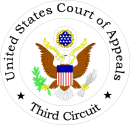A claim that a debt collector violated §1692g(a) of the Fair Debt Collection Practices Act (“FDCPA”) must be filed within one-year of the first communication, the Third Circuit recently held in Peterson v. Portfolio Recovery Associates, LLC, Case Nos: 10-2824 & 10-4013, 2011 U.S. App. LEXIS 11453 (3d Cir. June 6, 2011). In this decision, the first by a circuit court on the issue, the court specifically rejects the notion that subsequent communications by a debt collector can constitute separate and discreet violations of §1692g(a).
Section §1692g(a) provides that a debt collector must provide a consumer with certain written disclosures in its first communication (if written) or within five-days following its initial oral communication with the consumer. Here, in 2003, Portfolio Recovery Associates, LLC (“PRA”) sent the required written disclosures to an address at which it believed Peterson received mail. Although the mailing was not returned, Peterson demonstrated he had never resided at this address. In 2007, Peterson received a telephone call from PRA attempting to collect the debt. Further communications between Peterson and PRA occurred in 2008 and 2009.
In 2009, Peterson filed a lawsuit claiming PRA had violated the FDCPA because he was never provided the written disclosures required by §1692g(a). The trial court granted Peterson’s motion for summary judgment finding that although the 2007 communication was barred by the one-year limitation period of §1692k(d), the subsequent communications in 2008 and 2009 made his claim actionable.
On appeal, the Third Circuit reasoned that the limitations period under the FDCPA begins to run on the date of a debt collector’s “last opportunity to comply” with the Act. Subsequent communications do not constitute “continuing violations” for the purpose of determining when a claim under §1692g(a) can arise, because the debt collector’s last opportunity to comply with §1692g(a) occurs when the initial communication is made in writing or within five-days of the first oral communication. Here, because the initial communication occurred in 2007, PRA’s “last opportunity to comply” occurred within five-days of that communication. Had PRA sent validation notices in 2008 and 2009, “it would have violated § 1692g(a) by not sending a notice within five days of its first 2007 phone conversation with him. That conversation, as the statutory “initial communication,” was PRA’s last opportunity to comply with that provision.”
PRA was represented by the attorneys of Maurice & Needleman, P.C. A copy of the decision is available here: peterson opinion of the court 060611.


